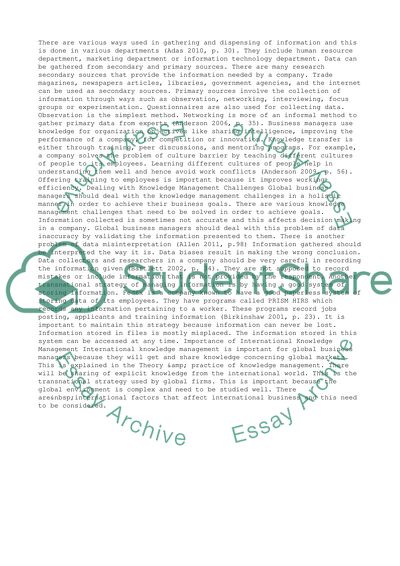Cite this document
(The Origin of Knowledge Management Term Paper Example | Topics and Well Written Essays - 1750 words, n.d.)
The Origin of Knowledge Management Term Paper Example | Topics and Well Written Essays - 1750 words. Retrieved from https://studentshare.org/management/1471939-ypglobal-business-managers-should-consider-and
The Origin of Knowledge Management Term Paper Example | Topics and Well Written Essays - 1750 words. Retrieved from https://studentshare.org/management/1471939-ypglobal-business-managers-should-consider-and
(The Origin of Knowledge Management Term Paper Example | Topics and Well Written Essays - 1750 Words)
The Origin of Knowledge Management Term Paper Example | Topics and Well Written Essays - 1750 Words. https://studentshare.org/management/1471939-ypglobal-business-managers-should-consider-and.
The Origin of Knowledge Management Term Paper Example | Topics and Well Written Essays - 1750 Words. https://studentshare.org/management/1471939-ypglobal-business-managers-should-consider-and.
“The Origin of Knowledge Management Term Paper Example | Topics and Well Written Essays - 1750 Words”, n.d. https://studentshare.org/management/1471939-ypglobal-business-managers-should-consider-and.


